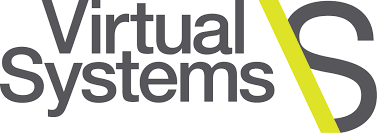IHMA protects critical microbiology data and meets rigorous compliance standards with Veeam

The Business Challenge
IHMA aims to support the biopharmaceutical industry’s efforts to combat antimicrobial resistance through participation in lab-based clinical trial studies. While its primary focus is microbiology lab support for clinical trials, IHMA’s primary deliverable is data.
“We’re not just a microbiology lab — we’re an information company,” said Joseph Finlay, Director of IT Operations at IHMA. “Our clients want the data that our lab generates. Protecting that data and ensuring continuous operations is essential to our mission.”
Much of the data that IHMA generates is derived from genome sequencing, split between virtualized and physical systems. This enormous amount of mission-critical data recently reached 80 TB and is still growing at an annual rate of 12%. Each IHMA client also requests specific data retention policies that range from 10 years to indefinite storage, which adds to the complexity of meeting stringent regulatory requirements like GDPR or FDA standards.
Previously, IHMA relied on a legacy backup solution that often fell short of its standards. Backups were frequently incomplete, and data recovery was a slow and inconsistent process that took days or even weeks in some cases. Moreover, the solution lacked scalability, making it increasingly unsuitable as IHMA’s data volumes grew.
The transition from VMware to Nutanix Acropolis further complicated the company’s DR plans.
“We didn’t just want a DR solution that worked with Nutanix — it also had to be reliable, scalable, and affordable,” Finlay said. “Our clients expect enterprise-grade performance. Protecting our data isn’t just a priority — it’s non-negotiable.”
The Veeam Solution
To improve compliance and protect its mission-critical data, IHMA chose Veeam Data Platform. Working with Virtual Systems, a Platinum Veeam Cloud & Service Provider (VCSP) partner, the company replaced its legacy tool with a modern DRaaS solution.
“Veeam offers us full integration with our new environment, unparalleled data portability, and the ability to achieve aggressive recovery objectives,” said Finlay. “Alternatives such as Nutanix Disaster Recovery and Azure Site Recovery either required excessive costs or added complexity. In the end, Veeam was the clear choice.”
Virtual Systems conducted a thorough virtual assessment of IHMA’s infrastructure and proposed a cost-effective and technically detailed approach to DR.
“Veeam integrates seamlessly with our Nutanix environment, which allows us to achieve our DR objectives without unnecessary complexity or cost,” said Finlay. “Along the way, we really valued the guidance we received from our Veeam partner.”
With Veeam, IHMA protects 80 TB of critical applications, including SQL Server databases and genome sequencing files, which form the backbone of microbiology research. Veeam’s ability to achieve compression rates of up to 4:1 for these predominantly text-based files helps to significantly reduce storage costs too. IHMA backs up its data every 12 hours, with restore points immediately replicated to two offsite locations, including an immutable repository.
With encryption of backups and detailed logs from Veeam, IHMA diligently complies with global regulations, including GDPR and FDA standards, as well as each client’s specific requests.
“We’ve aligned our backup policy to meet the stringent compliance requirements of our clients, many of whom require long-term data retention,” Finlay said. “With Veeam, we can securely store and recover data for decades, ensuring confidence during audits and inspections.”
With Instant Recovery from Veeam, IHMA has transformed its approach to workload recovery. With its previous legacy solution, a complete restore process could take up to two weeks, whereas with Veeam, IHMA can now recover entire systems or single files in as little as 20 minutes.
“Instant Recovery has been a game-changer,” said Finlay. “We can quickly recover from failures or missteps without disrupting operations, which is critical for a busy team like ours.”
As the relationship evolves, IHMA continues to rely on Veeam and Virtual Systems to protect its critical data and ensure compliance across a rapidly changing regulatory landscape.
“The next steps will be toward full cloud operations,” said Finlay. “When we make that move, Veeam will be central to our data protection strategy, just as it is today.”
The Results
- Reduces system recovery time for critical systems from two weeks to 20 minutes
“Instant Recovery from Veeam lets us restore everything from entire systems to individual files in just 20 minutes,” said Finlay. “This is a game-changer, especially for a lean team where time is critical.” - Ensures 100% compliance with worldwide data retention and security regulations
Encryption and detailed logs from Veeam provide the transparency IHMA needs to meet global regulations such as GDPR and FDA standards. “Auditors want evidence,” Finlay said. “Veeam helps us demonstrate compliance effortlessly.” - Protects sensitive business data from cyber threats
“When it comes to threats like ransomware, it’s not a case of ‘if’ but ‘when’ they will strike,” said Finlay. “With immutable data protection from Veeam and Virtual Systems, I’m confident that we can recover our systems should the need arise.”
Company:
Challenge:
Results:
- Reduces system recovery time for critical systems from two weeks to 20 minutes
- Ensures 100% compliance with worldwide data retention and security regulations
- Protects sensitive business data from cyberthreats
About Virtual Systems:
